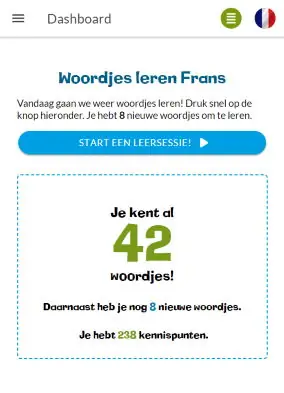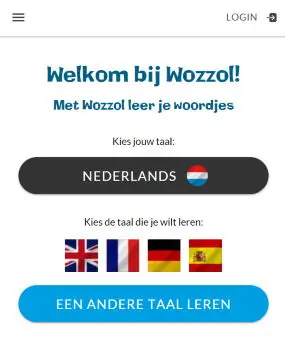- Engels Nederlands
- absurd = idioot
-
£5,000 – for one night! That's absurd!
idioot
- adverb = bijwoord
-
We use adverbs of manner to describe how we do something.
bijwoord
- angrily = op boze toon
-
He shouted angrily at the boy.
op boze toon
- angry = boos
-
People who don't listen make me angry.
boos
- badly = slecht
-
I'm afraid she thinks you acted badly.
slecht
- Band = band / popgroep
-
Bands enjoy playing at Glastonbury.
band / popgroep
- comfortable = comfortabel
-
The bed felt really comfortable.
comfortabel
- comfortably = gemakkelijk
-
Is everyone sitting comfortably?
gemakkelijk
- concert = concert / optreden
-
I'm afraid I can't get tickets for the concert.
concert / optreden
- director = regisseur
-
The director isn't going to use your scene in the film.
regisseur
- drama = drama
-
Scrubs is a drama series set in a hospital.
drama
- fast = hard / snel
-
The meteorite was falling fast enough to make a hole in the road.
hard / snel
- happily = blij
-
She walked happily down the road, smiling at everyone.
blij
- I'm afraid = bang zijn
-
I'm afraid I can't get tickets for the concert.
bang zijn
- loudly = hard
-
The man shouted loudly so his friend could hear him in the crowd.
hard
- make sense = ergens op slaan
-
I don't understand – it doesn't make sense.
ergens op slaan
- manner = manier van doen
-
The salesman had a rude manner.
manier van doen
- musician = muzikant
-
The musician began to play his guitar.
muzikant
- need = nodig hebben
-
The actors they needed a longer rehearsal to get the scene right.
nodig hebben
- nervous = zenuwachtig
-
She's usually nervous when she meets people.
zenuwachtig
- nervously = zenuwachtig
-
She looked nervously round the curtain at the audience.
zenuwachtig
- normally = gewoon / als gebruikelijk
-
We didn't speak too fast, we just spoke normally.
gewoon / als gebruikelijk
- noun = zelfstandig naamwoord
-
A noun is a person, a place or a thing.
zelfstandig naamwoord
- ourselves = onszelf
-
We weren't acting, we were being ourselves.
onszelf
- play = toneelstuk
-
Shakespeare's plays were extremely popular.
toneelstuk
- pleased = blij
-
I'm pleased that I am seeing my friends tomorrow.
blij
- politely = beleefd
-
The receptionist politely answered the telephone.
beleefd
- programme = programma
-
My favourite TV programme is Scrubs.
programma
- properly = voldoende
-
We didn't have enough time to rehearse properly.
voldoende
- quickly = snel
-
She thinks they spoke too quickly.
snel
- quietly = stil
-
Please sit quietly and listen to the teacher.
stil
- rudely = onbeleefd
-
My boss isn't polite - he often speaks rudely to me.
onbeleefd
- sad = verdrietig
-
She felt sad when she left her friend's house.
verdrietig
- sadly = verdrietig
-
She sadly waved goodbye to her friends.
verdrietig
- scene = scene
-
The actors filmed a new scene yesterday.
scene
- show = serie
-
The show is now the longest-running American sitcom.
serie
- slowly = langzaam
-
Steve thinks they spoke too slowly.
langzaam
- spend time = tijd doorbrengen met
-
It's nice to spend time with my family.
tijd doorbrengen met
- theatre = theater
-
I'd love to see a play at the Ice Globe theatre!
theater
- thought = gedachte
-
Walt Disney's wife thought of the name Mickey Mouse.
gedachte
- well = goed
-
He's happy because he did well in the test.
goed
- What a shame = wat jammer
-
I can't get tickets for the concert. What a shame!
wat jammer!


